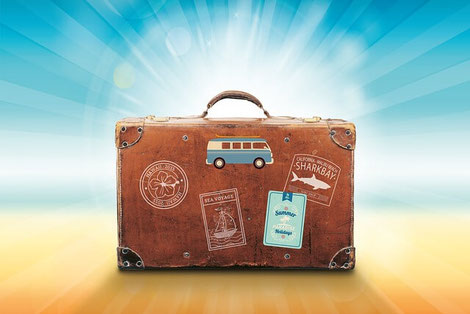
“’What do you like doing best in the world, Pooh? “Well," said Pooh, "what I like best," and then he had to stop and think. Because although Eating Honey was a very good thing to do, there was a moment just before you began to eat it which was better than when you were, but he didn't know what it was called.’
What Winnie the Pooh is describing is, of course, anticipation. And anticipation is indeed a powerful thing – one that can be harnessed to improve well-being and mental health.
For example, take holidays or weekends away. The great thing about going on a trip isn’t just the trip itself – it’s the anticipation and excitement you feel beforehand. One study found people experienced a bigger boost in happiness when anticipating a trip than actually taking the trip. Importantly, anticipation can sustain us for long periods – in this study, anticipation meant people’s happiness was boosted for eight weeks prior to the trip.
Another study measured people’s endorphin levels – essentially, happy or feel-good hormones associated with feelings of joy and excitement – before they watched their favourite comedy movie. Even before they watched it, participants’ endorphin levels had jumped by 27 per cent. Simply thinking about enjoying the movie was enough to make people happier.
Anticipation helps us cope with stress. In one study, looking forward to a positive event was shown to make people feel more positive both during and after stress. As an example, let’s say you’re worried about an upcoming work meeting. One simple coping tip might be to arrange to go out with friends after the meeting. That way, you get to experience positive emotions both prior to and after the potentially stressful meeting.
Anticipation is the reason people tend to be happier on Friday (when they are still at work but looking forward to the weekend) than on Sunday (when they are off work but thinking ahead to Monday). It explains why most of us prefer early February to early November; although February is colder and both months are short in terms of daylight, we’re looking ahead to longer days in February but thinking of the short days to come in November.
Similarly, one of the most difficult things about the pandemic was that it robbed people of this sense of anticipation. Holidays, weddings, get-togethers – it was so difficult to plan ahead with any confidence because you never knew if more new restrictions would be introduced. People had less to look forward to, and this was psychologically sapping.
FREE HAPPINESS
Anticipation has been described as free happiness. It’s a great term, one that captures the fact that anticipation doesn’t cost us a cent, is readily available to us, and can make a good situation even better. Kids are especially good in this regard, always counting down (“five more sleeps to Christmas”), to birthdays and holidays and anything that makes them excited.
Can us adults learn from kids in this regard? I think we can. For example, if you’re going on a trip – whether for a one- or two-night break or a longer affair – you might like to start packing weeks in advance, and leave your bag or suitcase on full view. That way, every time you enter the room, you’re reminded of the upcoming trip, and get a little jolt of free happiness.
Similarly, a little planning can boost everyday happiness. You might plan on watching a movie or documentary you’re excited about; you might plan a meal night, whether it be trying out a new recipe or eating out or getting a takeaway; you might look forward to reading a book you’ve heard about.
And you can think further ahead. For example, if you’re planning on taking a trip later this year, you can start planning months in advance – say, by enjoying YouTube videos of your chosen location. We can all train ourselves to fully appreciate and utilise the power of anticipation.
And on that note, I’ll end with another quote from a children’s book, Antoine de Saint-Exupéry’s The Little Prince: ‘If you come at four in the afternoon, I'll begin to be happy by three.’